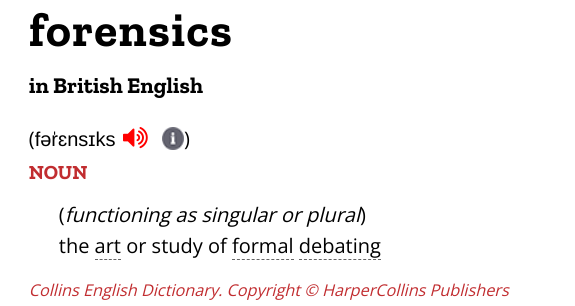The Guardian's was among the many media reports of the kerfuffle caused by...
<tangent>
(or rather shortly before according to the analysis in the latest episode of More or Less; the blurb says:
The Cass Review is an independent report on the state of gender identity services for under-18s in England’s NHS. It found children had been let down by a lack of research and "remarkably weak" evidence on medical interventions in gender care. But before it was even released, claims were circulating online that it ignored 98% of the evidence in reaching its conclusion. Is that claim true?~
)
</tangent>
... a paroXysm (formerly known as "a tweet"...
<tangent>
(It's a great shame, I feel, that "Twitter" became [Mus]"X" [Folly]. The image of the little blue bird reminded me of the etymology of the word "gazette":I like that 'false chatter' {and give yourself a Brownie point if you noticed the link between this bird and Rossini's opera}.
</tangent>
... the Report that led to Dr Cass receiving "vile abuse" and being advised not to use public transport.
The doctor behind a landmark review of the NHS’s gender identity services for children and young people has said fears had been raised about her personal safety amid online abuse after the report’s release.
Dr Hilary Cass told the Times she wished to address the “disinformation” circulating about the findings and recommendations handed down by the Cass review when it was published on 10 April....
She said she had received online abuse in the wake of the report and had been advised to stop using public transport.
That More or Less report held that the first exhortation to ignore the Cass report on the grounds that it 'discounted 98% of the research' was a ridiculous assertion somewhere between a gross over-simplification and a lie; at any rate [to quote Doctor Cass in various press reports, and – of course – More or Less] it was disinformation [presumably aimed at smearing her as a 'Trans-Exclusionary Radical Feminist').
Os retornados
<autobiographical-note relevancy="0">
Less than two years before, I had spent the summer enrolled in a summer course at the Universidade de Coimbra. In those largely pre-wheeled-luggage days ...<tangent>Bernard D. Sadow developed the first commercial rolling suitcase by applying for the rolling luggage patent, which was officially known as; United States patent 3,653,474 for “Rolling Luggage”, in 1970. Two years later in 1972 Bernard D. Sadow was given the wheeled suitcases patent, which became successful. A number of people (not men, for some reason – it's almost as if women made up for relative physical weakness [on average] by using their brains. It took a man to cash in on the idea though.)
</tangent>...I was struck, on a day-trip to Lisbon, by the sight of a native of one such colony ...
<tangent>
It's just struck me that it's normal for commentators to refer to 'First Nation peoples' in America and Australasia, but I haven't met the usage in Africa – ironic in view of the fact that Africa's where humanity got started. (Maybe it's just that I don't move in the right circles though...).
</tangent>
... hurrying through the main station at Lisbon with a suitcase skilfully balanced on her head.
</autobiographical-note>
(Predominantly) white colonials who had returned (os Retornados...
<tangent>
[known unfortunately but inevitably, as 'the Returnees'...<meta-tangent>
I feel a certain antipathy to neologisms ending -ee that don't derive from pseudo-reflexives such as s'échapper (escapee) or se refugier (refugee). "Retiree" and "Attendee" make my stomach churn. I know this is silly; it's just me. In defence ...<meta-meta-tangent>...of "returnee", return is, as my French master M. Baring-Gould used to say un verbe de déplacement, and would therefore (if it were French) take être in the Passé Composé. But I digress.
Yes dammit: Add to dictionary.
<meta-meta-tangent>
<meta-tangent>]
</tangent>
<autobiographical-note>
I was briefly in thrall to a fellow guest at the Pensão Alentejana. One evening we were walking la main dans la main (as tous les garçons et les filles de [notre] âge used to do – after all, she was French (though not Sylvie Vartan) – and were stopped by a policeman who wanted to know if we were married. It took a few years for such a culture to relax.
</autobiographical-note>
At first, it was feared that the influx of hundreds of thousands of returnees would be crippling for Portugal. A confidential CIA memo dated September 1974 (approved for release in 2005) warned:
Portugal's Carnation Revolution is well worth a listen.
But that's all for now. I must go and wrestle with my conscience about using the pressure washer – which the people at Greenredeem take a dim view of.
b







